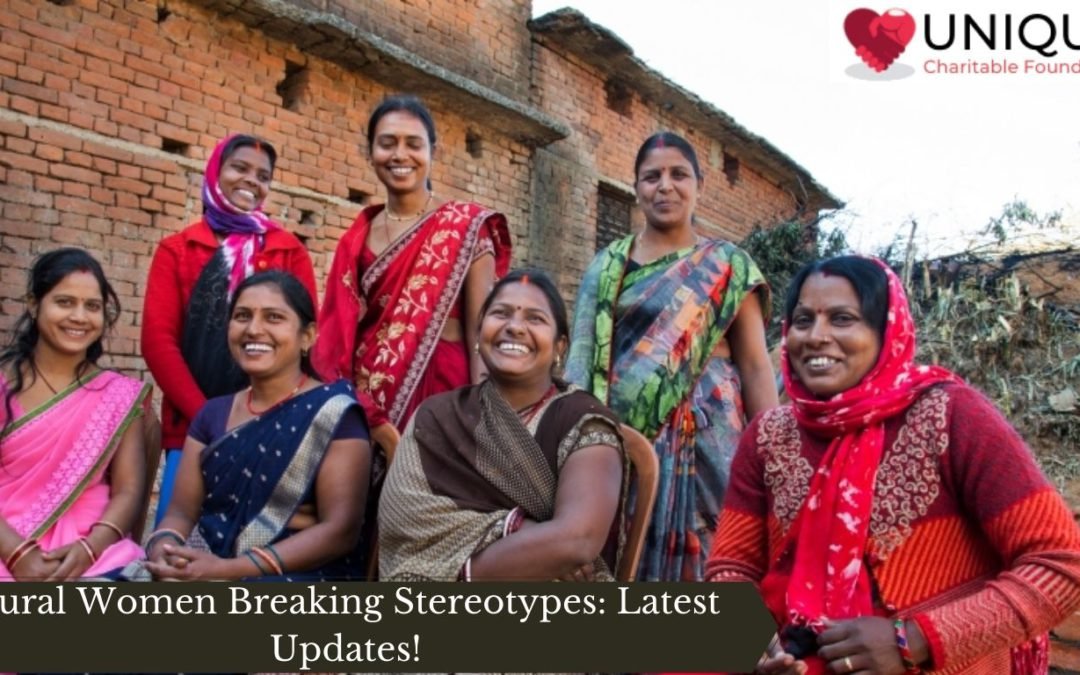Alongside the inconvenience of man-centric and conventional limits on their decisions, rural women are frequently dependent upon stereotypical biases dependent on cultural and religious beliefs that make obstructions to gender equity. For example in Period. when a gathering of young men are inquired as to whether they understand what period implies, one of them says it’s a “rog (a disease)”. This isn’t his language, the language he got from the adults around him.
Rural women Stereotypes can produce an intergenerational pattern of unsafe sentiments and thoughts that impact policies and practice. Like the women in the narrative who are breaking the Stereotype around the feminine cycle by making pads, creating awareness, and guaranteeing availability, there are a lot more in towns across India who are battling gender-based traditions and attitudes.
Note- You may also study about the 10 New Year Resolution to make future better.
Rajkumari Devi rural women, Muzaffarpur region, Bihar Teaching women abilities and creating business open doors available to them makes them financially free as well as drives socio-cultural development. In regions where women are limited to their homes and housework, getting them to work professionally is a significant advance towards achieving a change. This is the thing that Rajkumari Devi, famously known as Kisan Chachi, has been doing in her town. She has helped more than 300 women take up farming and encourages them to grow vegetables, fruits, and grains.
After marriage, she wasn’t permitted to step out of the house even to purchase food supplies. A long time later, when her significant other acquired land and developing tobacco wasn’t productive, Rajkumari chose to learn to farm and enrolled herself in a college. In addition to the fact that she pursued agriculture, frequently generalized as a man’s work, however, she likewise utilized her obtained abilities to begin a business, and today she appropriates 23 varieties of jams and pickles produced using her farm-developed vegetables and natural products.
To encourage different women to do likewise, she prepared many women to frame self-health groups (SHGs) and taught them farming. She was granted a Padma Shri recently.
Note- Also Read about the importance of Medical Donation in India.
Jyoti and Neha Kumari rural women, Banwari Tola, Uttar Pradesh
At the point when their dad suffered a paralytic attack, 14-year-old Jyoti and 12-year-old Neha Kumari chose to make an intense step assuming control over his barbershop which is the family’s principal kind of income. They realized adjusting to school and the shop would have been a major test yet what truly stressed them was the local area’s response to young ladies functioning as stylists. So the sisters disguised themselves as young men and began calling themselves Deepak and Raju when working in the shop.
“We expected that the residents wouldn’t have any desire to get a shave or anything from us since we were young ladies,” Jyoti said. Today, the townspeople know their genuine personalities and they couldn’t care less. It appears to be like the disguise the clients to expose and address the man-centric society inside themselves.
Note- Also read the impact of donations during coronavirus in India.
“Until a couple of days prior, I didn’t realize they were young ladies. Presently, it doesn’t make any difference. I’m here now and will continue to return since they came back, work hard and charge sensibly,” one of the clients said. Presently, after effectively breaking the age-old barrier and driving the local area to change their gender standards, the young ladies desire to begin their salon sometime in the future.
Sargam Mahila Band, Dhibra town, Bihar
The Sargam Mahila Band in Dhibra town close to Patna is an all-lady band began by Sudha Varghese, founder of the association, Nari Gunjan.
The band began with 10 women from the Ravidas people group and are viewed as Mahadalits, the most marginalized among the Dalits. The Dalit people group are forced to settle outside the town as the upper-castes consider them to be ‘unclean’ Things were blended when Sudha went to the town five years back and offered to play to teach the women how to play the drums a typical practice yet limited to men in the community.
At the point when they began learning, the locals made fun of them yet these women were resolved. “Individuals used to laugh at us, yet for what reason should women sit at home?” Sabita Devi rural women, one of the musicians inquired. “Nowadays, women are flying planes – for what reason wouldn’t we be able to be in a band?”
Today, the band is the only all-women band in east India and at whatever point there is a festive occasion, they are called to perform. For them, the greatest change is that nobody presently calls them ‘untouchable’ or puts them down because of their position. Being treated as an equivalent is the thing that they value the most.
Note- You may also study about the term homeless children.

